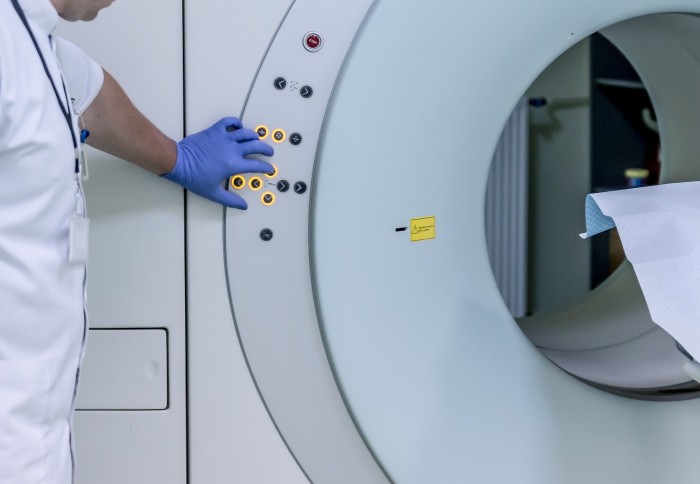Microwave technology could become portable and energy-efficient, study suggests

Researchers in the Department of Materials have developed a new 'spin-cold' refrigerator which could lead to energy-efficient microwave technologies.
In quantum mechanics, a quantum operation describes a broad class of transformations that a quantum mechanical system can undergo.
Technologies such as Magnetic Resonance Imaging (MRI) use quantum operations and microwave frequencies to operate. However, quantum operations at microwave frequencies can often become scrambled by thermal noise caused by photons. This noise can limit the speed at which an MRI scan or Electron Paramagnetic Resonance (EPR) spectrum is taken.
The conventional approach to reduce this scrambling is to operate quantum devices at cryogenic temperatures –inside bulky, mechanically fragile refrigerators that typically consume a large amount of electrical power.
New findings from the Department of Materials have discovered a way to remove thermal noise, without the need for high-energy bulky and mechanically fragile refrigerators.
These findings have demonstrated portable, more sensitive detectors of microwave photons, capable of operating outside of a physics lab. Researchers believe this could impact the operation of spectrometers and MRI-like body scanners, leading to faster scans with greater resolution.
Investigating the reverse of masing: Cooling
A maser is a device that produces coherent electromagnetic waves through amplification by stimulated emission. The difference between a laser and a maser is that the photon from a laser is emitted in the form of visible light, while a photon from a maser is emitted in the form of microwaves.
"The system can be identified as a extremely convenient platform" Dr Mark Oxborrow
Researchers had previously developed masers capable of operating at room temperature. Building upon this research, they set out to investigate whether microwave thermal photons could be reduced through the reversed process of masing. Researchers investigated whether photons could be absorbed rather than emitted, leading to cooling.
They tested this theory using Pentacene (doped in para-terphenyl), a popular organic semiconductor. It was found that pentacene’s energy levels can efficiently absorb thermal photons within a microwave cavity.

These findings initialized the development of a benchtop solid-state compact “spin-cold refrigerator” which can temporarily remove thermal noise while at room temperature. This operates through exploiting a maser in reverse to achieve the same cooling temperatures.
This research paves the way for the replacement of high-energy and bulky cryogenic infrastructures with room-temperature yet “spin-cold” refrigerators.
Testing cooling methods
Researchers will now investigate using this cooling method to improve room-temperature masers and explore other material systems which can cool a microwave cavity to refrigerated levels.
I believe this cooling method will enable us to experimentally observe more intriguing quantum phenomena at microwave frequencies at room temperature Dr Hao Wu
The first author of the paper, Dr Hao Wu, is now investigating hybrid-system based quantum sensors at the Centre for Quantum Technology Research, Beijing Institute of Technology.
Author and Postgraduate Researcher Wern Ng is currently supervised by Dr Mark Oxborrow, investigating potential maser gain media at room temperature.
This paper is now available to read in Physical Review Letters.
Article text (excluding photos or graphics) © Imperial College London.
Photos and graphics subject to third party copyright used with permission or © Imperial College London.
Reporter
Kayleigh Brewer
Department of Materials
Wern Ng
Department of Materials